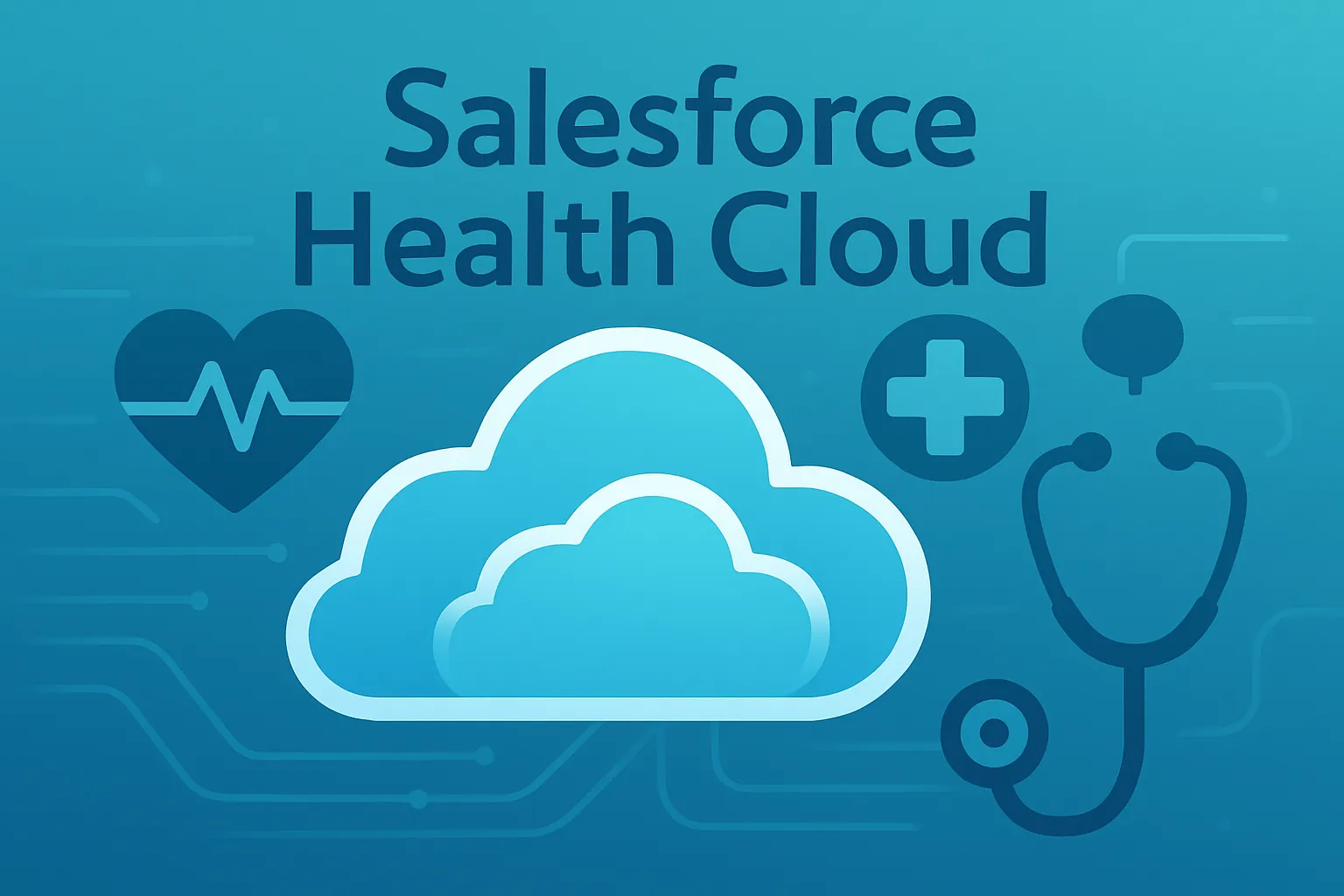
In this blog, you’ll learn what a payer is in Salesforce Health Cloud, why they play a critical role in healthcare, and how Health Cloud helps them work more efficiently. A payer is typically a health insurance company that covers medical costs like doctor visits, surgeries, or medications on behalf of patients. They collaborate with providers such as hospitals and clinics, work with pharmaceutical companies for compliance, and manage insurance plans for individuals or organizations. In countries like the United States, payers are essential because health services often require insurance coverage, whereas in countries like New Zealand, government-funded healthcare reduces their role. We’ll explore what payers do, the challenges they face, and how Health Cloud features—like centralized records, compliance tracking, and customer portals—help streamline their operations and improve member experiences.
What is a Payer in Health Cloud?
- A payer is usually a health insurance company. They help people pay for medical costs, like doctor visits, surgeries, or medicines.
- Payers are organizations like health insurance companies that pay for healthcare services on behalf of patients.
- They can cover medical, dental, specialist, or other health-related costs, depending on the insurance plan.
- In some countries (like the US), payers play a big role; in others (like New Zealand), most care is government-funded, so payers are less prominent.
Examples of payers:
- Medical insurance companies
- Dental insurance providers
- Companies that give health plans as employee benefits
Payers' Role Differences by Country
- In countries like New Zealand, the government covers most healthcare costs—so private insurance (payers) is less common.
- In countries like the United States, almost everyone needs health insurance (a payer) for any health service. That's why payers are a big deal there.
What Do Payers Do?
- Create & Offer Insurance Plans: Payers design health plans for individuals, families, or companies, covering various medical needs.
- Work With Providers: They coordinate with doctors, clinics, and hospitals (providers) to approve, pay for, or reject medical services.
- Collaborate With Pharmaceuticals: Payers check that drug makers are licensed and their products follow health regulations.
- Help Customers (Members): People or companies who buy insurance are called members. Members want to see their plans, submit claims, and get help easily.
Why Are Payers Important?
- Payers work with:
- Providers (doctors, hospitals, etc.) to approve treatments.
- Pharmaceuticals (medicine makers) to track licenses and medical compliance.
- They offer different insurance plans and compete to attract more customers, so they need:
- Good deals and flexible plans.
- Tools to create quotes and invoices.
- A full picture of customers' medical histories.
What Problems Do Payers Face?
- Keeping Track of So Much Data: There’s data on patients, providers, drugs, certifications, and laws—it’s a LOT!
- Staying Secure: Health and insurance info is very sensitive. Data leaks could hurt patients financially or personally.
- Efficient Service: Customers want to see their plans, submit claims, and get answers fast—ideally online, not always on the phone.
- Working With Many Partners: Payers must work with clinics, hospitals, pharmaceutical companies, and government agencies—all with their own requirements.
- Regulation and Compliance: Payers must follow laws about patient data privacy, medical licensing, and insurance practices.
Health Cloud Features for Payers
- Centralized Records: Keeps patient, provider, and pharma data in one place—easy for insurance companies to manage.
- Quoting & Invoicing: Ability to quickly create, send, and track insurance plan quotes and invoices from the same platform.
- Compliance Tracking: Keep records of providers’ and pharma certifications, licenses, and regulation checks.
- EHR (Electronic Health Records) Integration: Lets payers see medical histories and timelines for better plan approvals.
- Security: Keeps patient and insurance data safe from leaks or hacks (important because health data is sensitive and private!).
- Customer Experience: Members (customers) can log in to check their plan details, download documents, and submit claims online.
- Self-Service & Support: Online claims forms and knowledge articles help customers without always needing to call customer service.
- Omni-Channel Contact Center: Lets customers reach out by phone, email, or website chat, making it easy for them to get help.
Real-Life Example
- In countries where healthcare is mostly free, like New Zealand, private insurance is handy if you want faster access to specialists or dental/GP services.
- In the US, most companies give health insurance, and people need insurance for almost every healthcare service.
How Does Health Cloud Help Payers?
- Combines all the info needed by payers, providers, and pharma companies so decisions are faster and more accurate.
- Makes it easy for insurance companies to manage medical histories, communicate with providers, and offer a better experience for members.
- Supports provider network management, care management, pharmacy, and more—helping payers stay efficient and competitive.
Summary
Health Cloud is useful for payers, especially in competitive markets where offering a better customer experience is important. If you help with Salesforce Health Cloud consulting, knowing the difference between payers (insurance), providers (doctors), and pharmaceuticals (medicines) is key. Security and privacy are super important for payers because health and insurance records handle sensitive data. A payer in Health Cloud means a health insurance company. Health Cloud helps payers easily manage plans, customers, medical info, and compliance all in one place, offering a smoother experience for both the company and its members!